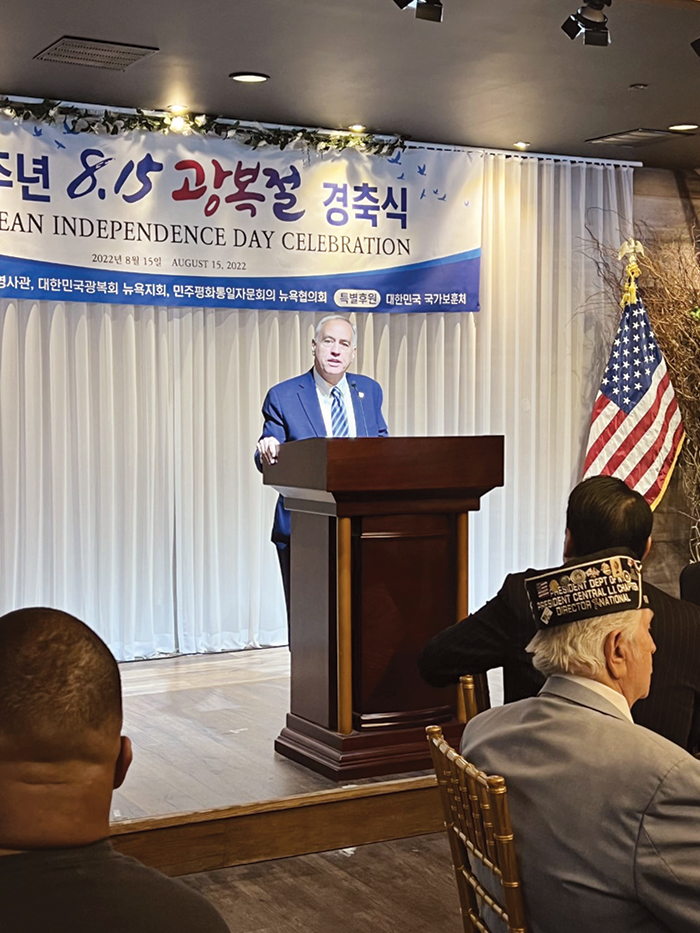Photo Courtesy of Comptroller DiNapoli
“My latest Medicaid audit found more examples of how oversight weaknesses impose unnecessary costs on taxpayers,” Comptroller DiNapoli said.
By Forum Staff
Hundreds of millions of dollars were spent on Medicaid Managed Long-Term Care (MLTC) costs for individuals who no longer qualified for the program, according to an audit released earlier this month by State Comptroller Tom DiNapoli.
The audit found that inadequate oversight by the State Department of Health (DOH) over a period of more than six years resulted in over $700 million in overpayments for ineligible members and $2.8 billion for minimal services for eligible members.
Medicaid’s MLTC program provides long-term care services, such as home health care and nursing home care, to chronically ill or disabled patients. To be eligible, patients must meet certain criteria, such as needing community-based long-term care (CBLTC) services for more than 120 days. Some individuals are automatically enrolled in MLTC, others can choose to voluntarily enroll. DOH contracts with Maximus Health Services Inc. to assess whether individuals who voluntarily enroll meet the MLTC criteria.
MLTC plans were responsible for doing semi-annual assessments of their membership to determine whether members still qualified to remain in MLTC and on their plans. Over the audit period examined from January 2015 to March 2021, auditors found issues with MLTC plans’ review of member eligibility and their processes for removing members who no longer qualified for MLTC. In one example, Medicaid made 48 monthly premium payments to an MLTC plan from 2016 to 2021, totaling $151,490, on behalf of a patient who should not have been allowed to remain in the MLTC program. Despite their ineligibility, the member was continually assessed as eligible and needing MLTC.
Oversight of the MLTC program is critical because it helps ensure members get the care they need and contains costs. These are services that are more expensive than others because the premiums paid to MLTC plans are often higher than other types of Medicaid managed care. Individuals who are not eligible for MLTC but still eligible for Medicaid can be moved to less costly Medicaid coverage. MLTC plan officials and DOH attributed issues with membership management and service delivery to several factors including: the inability to get in contact with members believed to be ineligible; the COVID-19 pandemic; and DOH’s lack of systems to identify members who are not receiving services.
DiNapoli’s audit recommended:
- A review of the $701 million in improper payments identified in the report to ensure overpayments are appropriately recovered;
- Development of a process to ensure timely MLTC disenrollment of members who are no longer eligible for MLTC care;
- Re-assessment of the process and time frame for disenrolling ineligible members from MLTC; and
- Monitoring of MLTC enrollees to ensure they are properly assessed and receiving the appropriate level of care.
“My latest Medicaid audit found more examples of how oversight weaknesses impose unnecessary costs on taxpayers. This time, failure to effectively monitor money allowed $701 million worth of improper spending, and may have also led to unsatisfactory long-term care for eligible patients in need,” DiNapoli said.
In response to the audit, DOH generally agreed with the recommendations and indicated that actions are being taken to address them.

